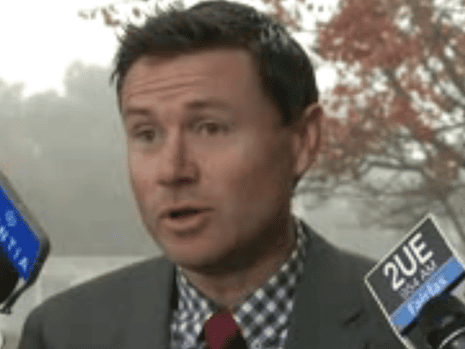An out-of-touch “alliance of Greens, gays and atheists” is behind the campaign against the national school chaplaincy program, the Coalition backbencher Andrew Laming has argued.
The Queensland MP made the comment on Thursday morning before the high court's decision to uphold a legal challenge against the program’s federal funding arrangements.
Laming, one of the MPs who lobbied the former prime minister John Howard to introduce the chaplaincy program, suggested the legal challenge was “frivolous and futile”.
“I look directly in the eyes of the loose alliance of Greens, gays and atheists who have mounted this continuous campaign against chaplaincy: you are clearly out of touch,” Laming said as he entered Parliament House on Thursday.
The Greens’ spokeswoman on schools, Penny Wright, dismissed the comment, saying concerns about the program were widespread.
“There are Australians who are constantly telling me that they want to see qualified, professional mental health support for their students [and] their children,” Wright said. “The time for amateurs is over and indeed everyday Australians are telling me this every day and that’s who I’m listening to.”
The high court challenge was brought by Ron Williams, a Queensland father who objected to chaplaincy at the state school his children attended. He argued there was no place for religious chaplaincy in the secular school system.
On Thursday the high court ruled federal payments to the chaplaincy provider Scripture Union Queensland were unlawful because the funding agreement was not supported by the commonwealth’s executive power.
The government is now investigating how it can continue to fund chaplaincy, for example through tied grants provided to the states rather than directly to individual chaplaincy providers.
The Coalition allocated an extra $245m in last month’s budget to extend the national school chaplaincy program and also decided to remove the option for schools to appoint a non-religious welfare worker under the scheme.
The Australian Education Union called for the funding to be diverted to “expert trained school counsellors, psychologists and welfare officers”.
